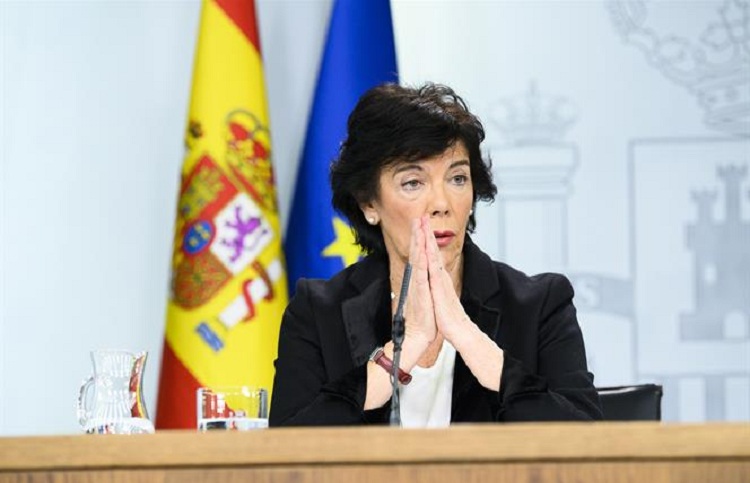The Diplomat
The President of the Government, Pedro Sánchez, has decided to appoint the former Minister of Education Isabel Celaá as Spain’s ambassador to the Holy See and has requested the Vatican’s approval, according to eldiario.es yesterday, citing government sources.
Celaá was Minister of Education and spokesperson for the government under Pedro Sánchez until he reshuffled his government last July. She is a secondary school teacher, and before being appointed minister she was minister for Education, Universities and Research in the PSE-EE government, headed by Patxi López, from 2009 to 2012.
If the Vatican grants the requested approval, Isabel Celáa, 72, will replace the current ambassador, Carmen de la Peña, a few months before she turns 70 in November 2022, the usual retirement age for diplomats.
It will not be the first time since the restoration of democracy in Spain that the Embassy to the Holy See has been occupied by a person who does not belong to the diplomatic career, since the socialist and former mayor of La Coruña, Francisco Vázquez, was ambassador between 2006 and 2011.
With this appointment, there will be six embassies occupied by ‘political’ ambassadors since Sánchez’s arrival at La Moncloa, three of them ministers. Former Minister of Health Carmen Montón was previously appointed to the OAS (Washington); the former Minister of Culture José Manuel Rodríguez Uribes, to Unesco (Paris); former PSOE Secretary for Economic Policy and Employment Manuel Escudero, at the OECD (Paris); former Director of the Regional Office in Bogotá of the Organisation of Ibero-American States Ángel Martín Peccis, in Cuba; and former Socialist mayor of Lérida Ángel Ros, in Andorra.
The appointment of people from outside the diplomatic career to head embassies is often criticised by diplomatic associations. Although this is a practice that has been used by all governments, the government led by José Luis Rodríguez Zapatero was the one that had the most ‘political’ ambassadors at the same time: a total of nine.
On the other hand, Sánchez’s decision to choose Isabel Celaá, whom eldiario.es claims is a “practising Catholic”, has caused some surprise in the educational sphere. This is especially so in the state-subsidised education sector, which, in large part, has Catholic ideals and which rejected many of the postulates of the so-called ‘Celaá law’ on education due to the obstacles it imposed on it, which, among other things, reduces the weight of the subject of religion in the school curriculum by not counting towards the average mark or having an alternative, as was the case until it came into force.
According to eldiario.es, the news, pending a response from the Holy See, has been received with surprise by the Spanish Episcopate, which did not expect such an appointment. “We don’t know what to expect, whether it is a challenge or an attempt to show a ‘Catholic’ face before Rome”, explained a high-ranking Spanish ecclesiastic.







